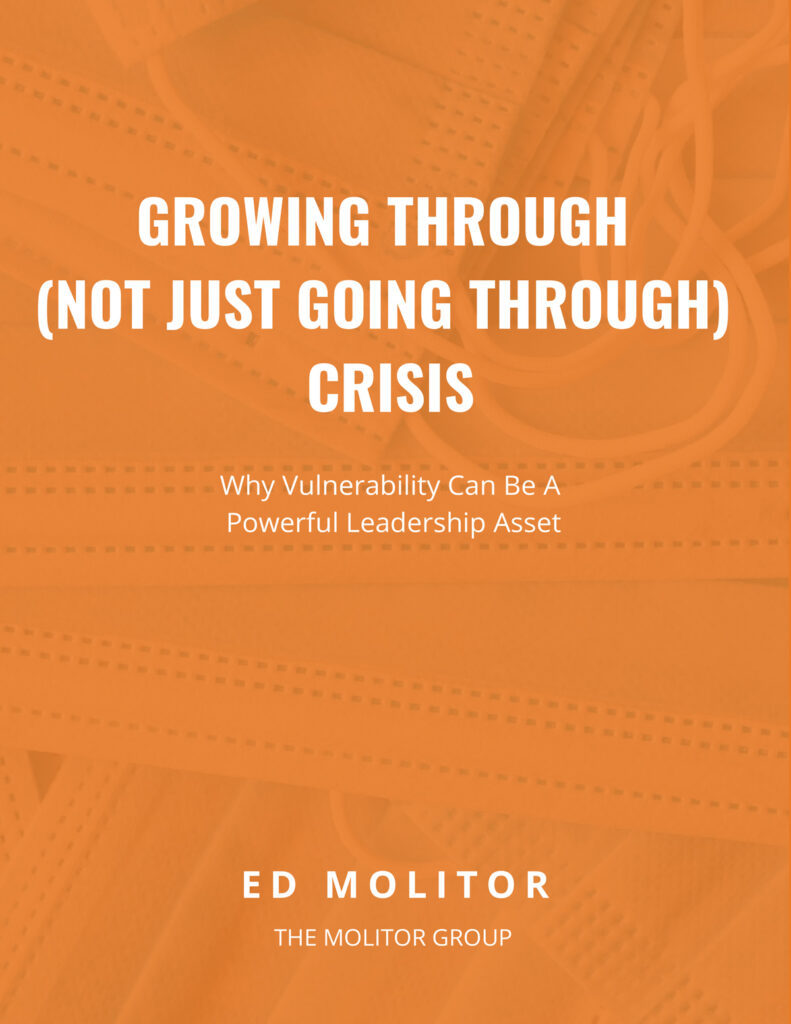Being in a state of discomfort is the only way a person can grow. Have you ever thought about that before? Readers of the blog and listeners to the podcast will know that I am fascinated with figuring out the impact coaches have on the growth of their people and how the team’s performance reflects how they’re coached. We talk all the time about a team being a direct reflection of their coach, and I just want to explore how great leaders can create a sense of discomfort and earn the right to develop healthy tension. I want to share why discomfort is so significant, how it is created and why it will help you understand how to explain, measure, and, most importantly, affect change. How to improve authentic leadership can be tough to figure out, so I hope my thoughts can help you on your path.
Authentic Leaders Grow
Being in a state of discomfort helps leaders grow — and that really feels like it goes against the grain of so many folks in our society today. I’m always fascinated with a coach’s impact on growth, whether it’s a business setting, athletic setting, or educational setting.
Consider the successful leaders you know, do you know why the teams they lead are so successful?
Spend some time watching coaches on the sideline, in athletics or business, read interviews and watch interviews of coaches, talk to people who work with them. Now ask yourself, do you believe the performance of a team reflects how that team is coached? I, for one, believe that a team is a direct reflection of their head coach and their coaching staff, or in business terms, the leader and their senior team.
There are many things that are endemic to great authentic leaders — what is synonymous with outstanding leaders is that their people describe the sense of discomfort. As human beings, we are wired for comfort, but growth only occurs in a state of discomfort.
How to improve authentic leadership is by talking to yourself instead of listening to yourself. Recognize in yourself when you come back to the same thought patterns, the same behaviors and try to foster an enhanced level of self-awareness.
Improve as an Authentic Leader
Elite teams are going to be prepared, they’re going to have each other’s back, they’re going to be great teammates, they’re going to be selfless — and that’s the result of authentic leadership.
We know that the workforce today wants to be valued, they want to know that the work they do is meaningful, and they want to be coached. Some people might be wondering why they should be putting their people in a state of discomfort and how they can do that in a productive way. First of all, coaches shouldn’t be interested in making their people happy; happiness is a personal state of mind, their interest should be in what creates growth—knowing that then it’s a leader’s responsibility to challenge people outside of their comfort zones when needed, when necessary, and when appropriate
The three consistent characteristics that great leaders have are;
- The ability to create strong trust-based relationships
- Having some predictable natures about you and your team, in other words creating order
- They challenge their people; great coaches find ways to make the world uncomfortable
When you do number one, and when you do number two, you have the right to do number three — you’ve earned the right by creating an environment in which your people flourish.
Your team has to feel valued and be psychologically safe to allow themselves to give in to the discomfort and see where that feeling takes them. One of the foundational primary themes of elite leadership is the relationship, which involves building trust connections, and an environment of safety where you embrace creative thinking.
If that’s not in place, although you have the formal authority to create discomfort and to challenge me and to try and get me to grow and to do more, and to provide discretionary effort, you’re probably not going to get it. Authentic leaders can use a sense of discomfort and healthy tension to get the best from their people in a way that sets the whole team up for success.
If you are wondering how to improve authentic leadership or looking to develop your leadership skills further, check out Episode 119 with Bill Eckstrom on The Athletics of Business podcast, where he and I discuss why being in a state of discomfort is the only way a person can truly grow and how you explain, measure, and affect discomfort as an authentic leader.



